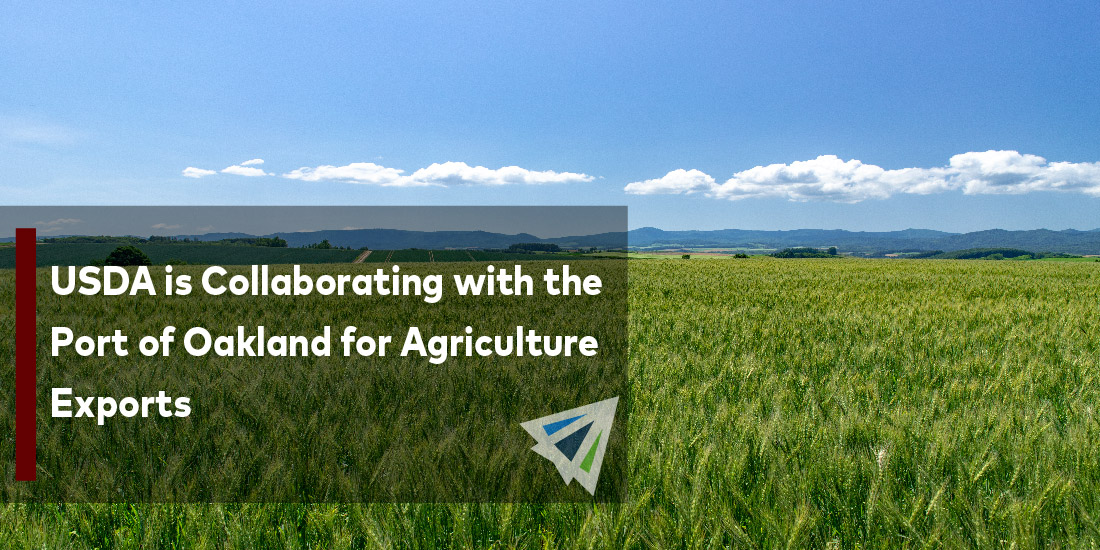USDA is Collaborating with the Port of Oakland for Agriculture Exports
Efficient movement of cargo is incredibly important across all industries. When businesses are struggling to get goods overseas, it creates bottlenecks that disrupt everything in the latter stages of the supply chain. In return, this affects all involved parties (shippers, buyers, manufacturers, retailers, etc.,).
But when it comes to prioritizing efficient shipping, most agree that agriculture holds a great deal of importance. That said, unfortunately, when we encounter slowdowns, congestion, and port grounds gridlocks, like those experienced in 2020-2021, every industry, including agriculture, is affected significantly.
For these reasons, the U.S. Department of Agriculture (USDA) has announced a collaboration with the Port of Oakland for agriculture exports.
USDA and Port of Oakland Collaboration
In a recent announcement, the USDA stated it is partnering with the Port of Oakland to create a new container yard specifically designated to agricultural shipments through the port. The effort is intended to increase the efficiency, volume, and capacity for agricultural exports. Any congestion or delays for this valuable industry create massive ramifications globally.
The USDA stated that they would be providing all funding, as well as financial subsidies for growers using the facility.
These recent changes are in response to issues seen with agricultural exporters who claim to have experienced disruptions with the FMC and carriers who have made less containers available for food and crop-related exports. Additionally, these exporters have seen return dates frequently change, and additional fees tacked on unexpectedly. In return, this has drastically affected U.S. based growers and distributors.
USDA is volunteering to cover up to 60 percent of start-up costs for the new 25-acre pop-up site that is set to open March. The department is also covering additional logistic costs at up to $125 per container for movements. This is being done to alleviate the financial burden placed on growers due to ongoing issues with surprise trucking surcharges.
In addition to the benefits of increased efficiency and predictable charges, the new port offers an advantage to agriculture shippers and distributors by making available to them pre-cool refrigerated shipping containers. This allows them to receive perishable commodities without the delays that would be inferred from entering the main port gates.
It is estimated that the project will cost the USDA up to $5 million, with startup costs beginning at $2 million.
Contact our team at InterlogUSA for more information about regarding this topic. We are happy to field any questions or inquiries you may have with how it can affect your specific situation. Additionally, check out our weekly market updates to stay up-to-date with relevant freight news and developments across the industry.
